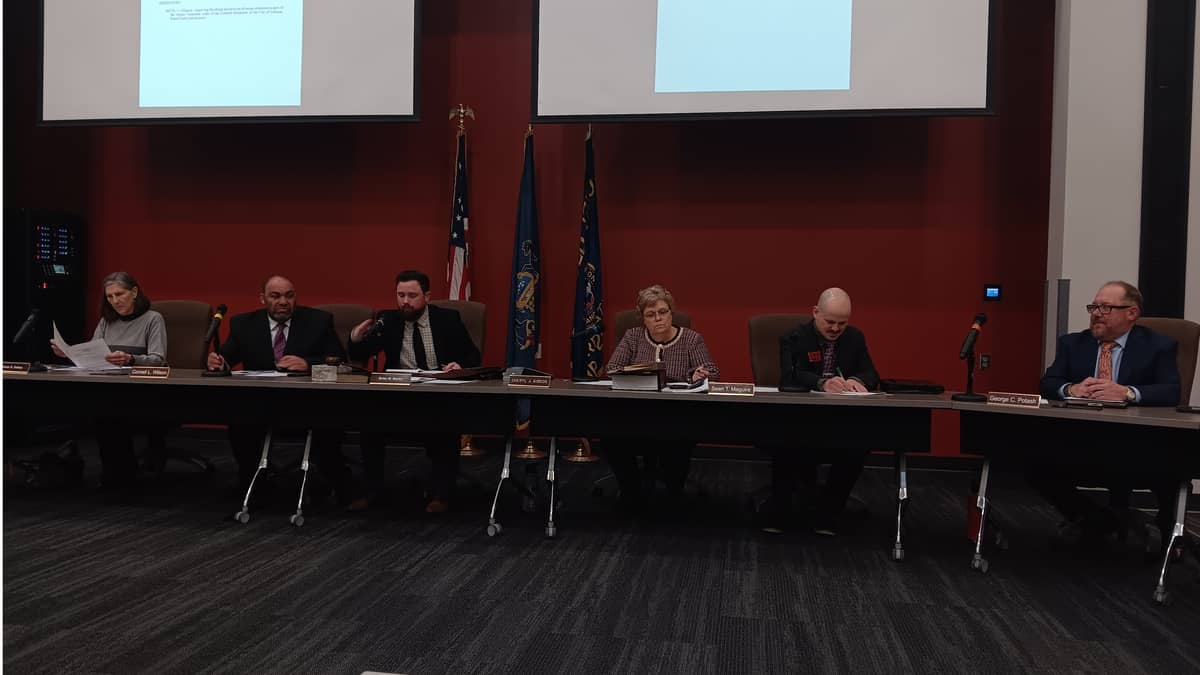Since 2015, there’s been an affordable housing crisis in Lebanon County for buyers and renters that, unfortunately, shows no sign of abating anytime soon.
In fact, according to Mike Ritter, co-chair of Lebanon County Coalition to End Homelessness (LCCEH), county officials are concerned that the crisis has the potential to become worse.

Ritter is also deputy director at Domestic Violence Intervention (DVI) of Lebanon County, one of about 30 county agencies, service organizations, and healthcare providers that compose the coalition’s board of directors.
Ritter said a number of factors are contributing to the affordable housing crisis in Lebanon County, which is simultaneously happening across the United States.
A lack of available single-family homes for sale, skyrocketing prices of homes on the market, and home builders constructing mostly much larger, and, therefore, more expensive homes, are contributing to the affordable housing shortage.
Ritter said the Pennsylvania Housing and Finance Agency (PHFA) released in 2020 a statewide report called “Pennsylvania Comprehensive Housing Study” that included countywide data that looked at available housing for three broad income brackets.


“The report showed that in Lebanon County the lowest income households, this is for rentals, the number of households in that lowest bracket who need housing outpaces the number of available affordable units for that income bracket,” said Ritter. “We don’t see that in the higher income bracket, so there’s a disparity between the number of people who need housing in that [lower] income bracket and the number of housing units we actually have available for them in the community.”
In 2015, there were 2,100 affordable units available for rent with 3,300 households within Lebanon County whose income fell into the lowest category, according to Ritter.
“Part of the conversation around this is the number of developers coming in to build, part of it is the age and quality of housing stock, and we also know that Lebanon County, and particularly the city, has an older housing stock that one might argue, for the younger generation, is less appealing,” said Risser.
Read More: Community Homes expands in pursuit of mission for more affordable housing
An aging population in the commonwealth is also contributing to the problem.
“As we see Census data coming out, we see that southcentral PA has an older demographic, which plays a factor as well because, obviously, the older people get, the more likely they are to be retired and to be on a low, fixed income. And I think that plays into this and connects to accessibility as well,” added Ritter.
It may not be on the scale of major cities, but Lebanon County does have a homeless population, noted Ritter.
Read More: New nonprofit aims to shift young adults away from homelessness
“One of the things that we experience in Lebanon County, unlike urban areas, is that we don’t see people living on our streets,” Ritter said. “However, people are mostly doubling up, … couch surfing, … squeezing into one-bedroom apartments, which is something they shouldn’t be doing per their leases. People are probably using those kinds of strategies to deal with housing shortages.”
Ritter noted that there are those people who “ebb and flow” around Lebanon City and around the county.
“People have, and can actually, temporarily, legally camp out at Stoever’s Dam Park on the northeast side of the city for like two weeks, … where they are allowed to pitch a tent,” Ritter said. “People who are doing that are doing so because they are homeless, they are not out camping for the fun of it.”
There are several other areas where the small population of homeless people live around Lebanon County, according to Ritter.
“We’ve found people sleeping in cars at the Lebanon Walmart. We’ve found people sleeping under the railroad overpasses at 9th and 10th Streets, [and under] the Grant Street bridge in Palmyra. And we recently heard about a family living in a tent in Jonestown. There never seems to be a large crowd in a large designated area. They ebb and flow, come and go. These are not large groups of people,” Ritter added.
In an effort to address the issue of housing affordability and homelessness, LCCEH is currently exploring a broad set of solutions and strategies – despite not having a paid staff or the ability to actually place individuals into housing.

“Our coalition is very unique in that we are just a collection of mostly agency representatives. Occasionally we have pastors and priests and other community members participate, but we are not a service provider. We don’t have a staff,” Ritter said. “So that’s just a way to say our strategies are broader than [the coalitions in] other counties who are service providers. We’re about awareness and building capacity for agencies within the community to work towards housing people and connecting people to housing.”
One of their broad strategies, Ritter said, involves utilizing the state’s Shared Housing and Resource Exchange (SHARE) program, which is currently in operation in eight counties across the commonwealth.
SHARE is an affordable housing choice designed to unite homeowners looking to share their homes with home seekers searching for a place to live in exchange for rent, assistance around the house, or both.
“The concept is like the old 80s, 90s sitcom, ‘The Golden Girls,’” said Ritter. “You have a homeowner, who may or may not be a senior, who has a single-family dwelling and bedrooms no one is sleeping in. Maybe they are looking to earn a little bit more money. Maybe they need a little bit of help paying the mortgage or rent. Or maybe they need assistance to help take care of things around the house.”
Ritter said SHARE works to ensure compatibility between renters and homeowners, offers counseling services and vets renters via background checks, among other services it provides to participating communities.
“We’re still kind of preliminary here, but what we want to do is to start talking to some of these programs to see what it would look like for them to come and make it work in Lebanon County,” Ritter said. “Again, we know there’s no new affordable housing on a mass scale that’s going to be built, so we have to look at what we can do with existing homes in order to house people.”
Ritter added that SHARE is one of 15 different options that LCCEH has been exploring while examining potential solutions to this crisis. Some, he added, would provide short-term relief, while others are more long-term and would take more time to implement.

A short-term solution is a program called Barter for Rent, Ritter said. This allows renters who may not have the funds to pay for their housing to provide services to the landlord in exchange for reduced housing costs.
“Is there a way they can barter?” Ritter said. “Can they fix something? Can they mow the lawn at the property? Is there something they can do at the property to fill in and earn their keep in lieu of a cash payment for rent?”
If the coalition adopts these two programs, Ritter said he believes SHARE and Barter to Rent could be operational by the end of 2021 in Lebanon County.
With affordable housing already hard to come by, this problem could be exacerbated in the future as rent and mortgage moratoriums, which were implemented at the onset of the COVID-19 pandemic, come to an end. It’s a possible scenario that has LCCEH board members concerned, Ritter added.
Read More: HDC breaks ground on affordable housing community in Bethel Township
“That is something that we have had many ongoing conversations about and are very concerned about just like many other communities across the nation,” said Ritter. “The coalition has upped its work, asking how we can have an effect on housing in Lebanon County in prevention of this impending mass eviction scenario that we’re all kind of on eggshells about. We don’t provide services and we don’t have staff, but we’ve asked ourselves what we can do to help and that’s led to us exploring these innovative strategies to see what’s viable for our community.”
Ritter said the rental and mortgage moratoriums were designed as just that: a temporary pause in making housing payments. He noted the coalition has been informing and educating local residents that they still have the financial responsibility to make their housing payments.
Questions about this story? Suggestions for a future LebTown article? Reach our newsroom using this contact form and we’ll do our best to get back to you.

Support local journalism.
Cancel anytime.
Monthly Subscription
🌟 Annual Subscription
- Still no paywall!
- Fewer ads
- Exclusive events and emails
- All monthly benefits
- Most popular option
- Make a bigger impact
Already a member? Log in here to hide these messages
Local news is a public good—like roads, parks, or schools, it benefits everyone. LebTown keeps Lebanon County informed, connected, and ready to participate. Support this community resource with a monthly or annual membership, or make a one-time contribution. Cancel anytime.

























